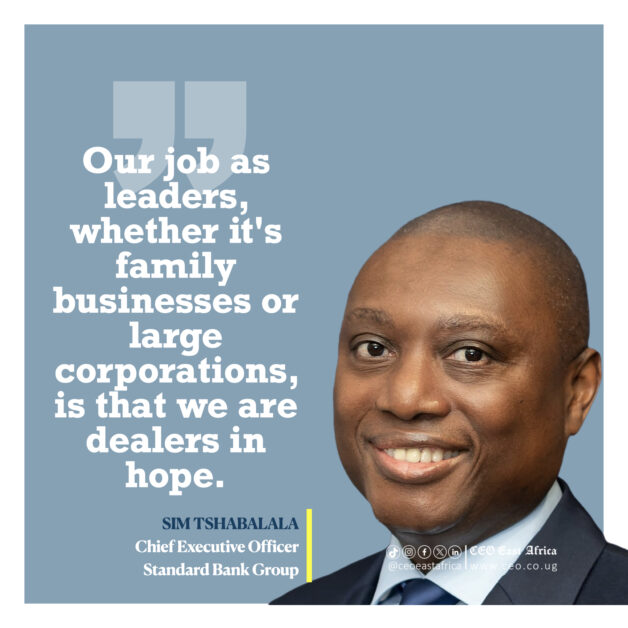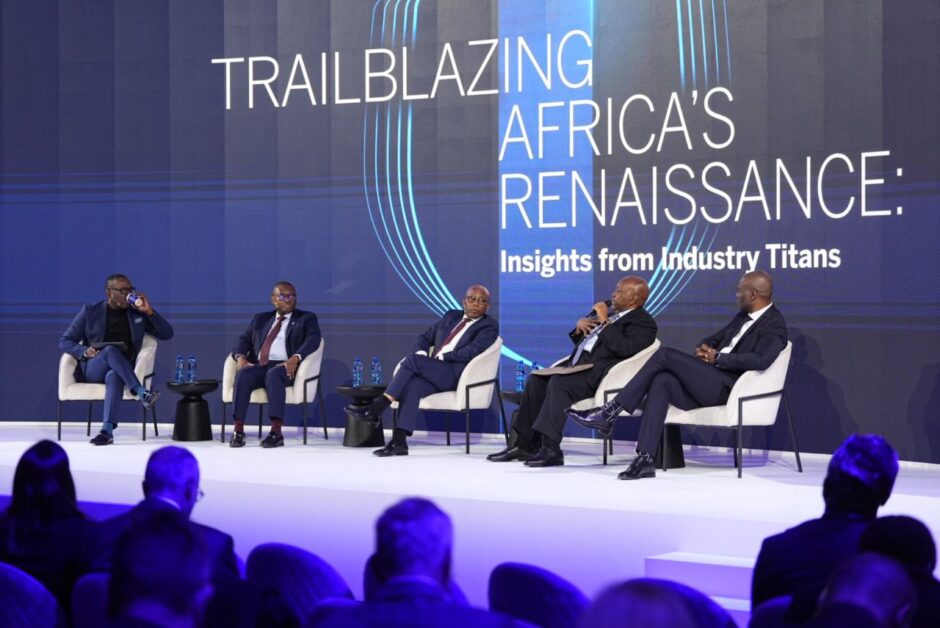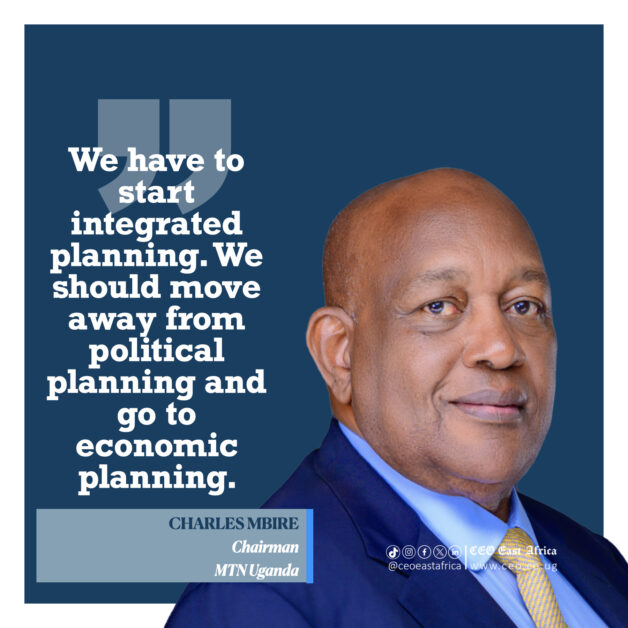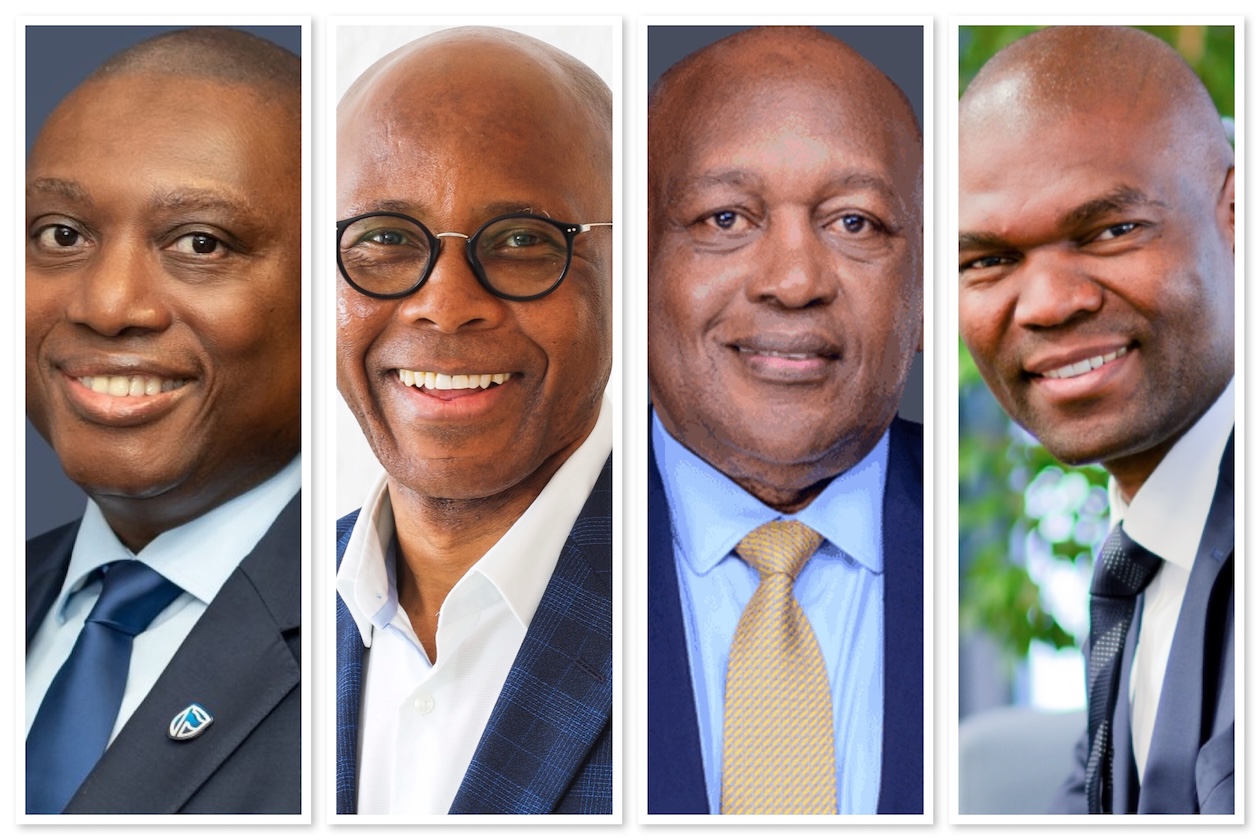As Africa accelerates toward a future defined by digital disruption, geopolitical complexity, and boundless entrepreneurial potential, the continent’s leaders are faced with a critical moment. Do they merely respond to change, or boldly shape it? At Standard Bank Group’s second annual Africa Unlocked 2025 forum, four industry titans shared the stage to confront this very question.
Sim Tshabalala (CEO, Standard Bank Group), Dr. Mteto Nyati (Executive Chairman, BSG), Dr. Charles Mbire (Chairman, MTN Uganda), and Vukani Mngxati (CEO & Chairman, Accenture Africa) offered profound reflections on leadership, innovation, and the hard truths about what Africa must do to turn its demographic dividend and natural wealth into shared prosperity.
Moderated by veteran broadcaster Bongani Bingwa, the panel titled Trailblazing Africa’s Market Renaissance: Insights from Industry Titans brought forth bold ideas, historic parallels, personal anecdotes, and sharp warnings.
The Standard Bank Africa Unlocked Conference brought together high-ranking government officials, distinguished partners, renowned thought leaders, senior executives, and key clients of Standard Bank Group from the key African markets in which the bank’s Business and Commercial Banking division operates.
Purposeful and Authentic Leadership in Times of Disruption
At a time of heightened volatility, uncertainty, and geopolitical flux, leadership in Africa requires not only strategy but authenticity, self-awareness, and resilience. The panellists drew deeply from personal experiences to unpack what it means to lead with purpose during tumultuous times.
Sim Tshabalala challenged the notion that today’s disruptions are historically unique. “History rhymes,” he said. “The period of de-globalisation we see now is not dissimilar to the period from 1815 to 1914.”
Sim Tshabalala said that the increasing agitation, the world over, by the youth and have-nots, as well as the mercantilism and the populism that flows from it, were a result of policies and decisions by leaders that leave certain groups of people behind.
“Those of us sitting in this room who were driving issues prior to these events need to take ownership. We instituted policies, strategies and actions that caused a lot of people to be left behind, and then we should not be surprised that they’re so angry,” he said, adding that this is why leadership with purpose was a must.
For Tshabalala, enduring leadership is rooted in clarity of vision and constancy of purpose. “In the Standard Bank case, our purpose is: ‘Africa is our home, we drive her growth.’ That will be the case through good and bad times.”

But more than purpose, he believes leaders must inspire hope. “Our job as leaders, whether it’s family businesses or large corporations, is that we are dealers in hope. Hope is a choice… If you’re hopeful, you’ll make the right investments.”
Dr. Mteto Nyati emphasised that effective leadership also requires introspection and courage. “One of the things that one needs to do as a leader is what I call self-awareness. You need to know what you’re good at, the things that you’re not good at.”
He recalled being approached by the South African President to help reform Eskom: “I had to go back to myself and say, first, can I do what I’m being asked to do? The answer to that was yes… I said, okay, if I’m capable and I say no, who will?”
Vukani Mngxati took the theme deeper, tying authenticity to trust. “Authentic leaders are the people who really change the world. Authenticity talks to being truthful first to yourself.”
He underscored that trust cannot be faked: “Whether you lead an organisation or a country, people want to follow the vision of someone who really embodies this characteristic. Non-authentic people come across as fake, and people don’t follow people they cannot trust.”
Africa’s Digital Advantage – A Wealth of Potential, a Crisis of Readiness
Africa stands on the brink of a digital revolution, rich with potential but alarmingly short on preparation. With widespread mobile penetration, increasing internet connectivity, and a fast-growing digital consumer base, the continent could harness these forces for exponential growth. However, the panellists warned that the opportunity may slip away unless deliberate, integrated planning takes place across governments, corporations, and education systems.
“The world is changing at an unprecedented rate,” said Vukani Mngxati. “We’ve never seen the rate of change that we are seeing today in any sector. It doesn’t matter which sector you’re in, but the change is super unprecedented and it’s led by technology.”
He warned boards and leaders: “If you aren’t investing in data and in AI, you have missed the boat. If you’re not doing it right now, understanding, helping your people, your organisation, to understand the impact of artificial intelligence in your organisation, you are missing the boat.”
He and Mteto Nyati co-founded Collective X, an initiative aimed at building digital skills for national competitiveness. “The biggest issue we have on the continent is the skills. We just simply do not have the skills to compete.”
Dr. Charles Mbire added a compelling perspective from the telecom sector: “Right now, data is available. The tools have changed. For example, if you came to our company, like a telecom company, I’ll be able to tell you over there, they have just harvested. Over there is a recession, a mini village recession. The movement of money, the mobile money platform, the usage, the alarm, the congestion, will tell you exactly what is happening.”
He continued, “All these are tools available right now to get the truth on the ground, and if we could work with banks, with all other players, we have the tools to determine and know how to predict the future going forward.”
Yet despite these insights and technological capabilities, Africa is lagging. “The new oil is called digital data,” Mbire said. “But if you look at the African data, we have only about 12% of the data centres, of which about 50% are in South Africa. Now we’re in there claiming we have minerals, we have population, we have demand. We are unfocused right now. We’re very unfocused.”
Grounded Reality and Integrated Planning for Africa’s Transformation
Africa’s future success depends not just on bold vision but on planning that is rooted in local realities and built on cross-sectoral coordination. This theme resonated strongly across the panel, especially through Dr. Charles Mbire’s insights.
Related
 MTN Uganda Shareholders Approve Mobile Money Separation from Main Telco Business
MTN Uganda Shareholders Approve Mobile Money Separation from Main Telco Business
“We have to start integrated planning. We should move away from political planning and go to economic planning, and then the potential of Africa will be realised,” Mbire urged.
He criticised the tendency of global institutions to rely too heavily on generalised statistics when assessing African markets. When he approached MTN headquarters with the Uganda opportunity, the initial response—based on World Bank data—was dismissive, projecting it would be difficult to reach even 8,000 subscribers in a year.

Mbire’s response was grounded in local insight: “My answer was, but those have not put into consideration the informal sector, which is the biggest part of our economy… The car washer earns $10, and the cart pusher earns $10. All these are not part of the statistics.”
That local knowledge proved vital. “We put up five base stations. On the first day, we got 7,000 subscribers before lunchtime. The CEO called me and said, There’s a problem… I said, Call South Africa and tell them. He called them. The next question was, are they talking? The answer was, they can’t stop talking.”
This disconnect between theory and reality underscored the need to prioritise ground truth. “We should also realise that the world is moving to the digital age… The new oil is called digital data,” Mbire said, stressing that digital insights must be married with social and economic planning.
He called for smarter, integrated planning: “We churn out students of IT—their shelf life is seven months, no jobs. They end up being Boda Boda riders or shopkeepers. But how much money do we spend training them? I think we’ve got to have that integrated planning. We should move away from political planning and go to economic planning.”
Vukani Mngxati also reminded the audience that Africa is not one homogenous entity and warned against the tendency to treat the continent as a monolith in global policy and business planning. We have 54 countries. It’s amazing how the West thinks we are one country called Africa. Each and every single one of those countries is different,” he said. He urged global and regional institutions to take the time to understand country-specific dynamics instead of applying blanket strategies. “You cannot put a strategy from one country to the next… Johannesburg is not Africa. Africa is made up of 54 countries.”
Dr. Charles Mbire reinforced this point by cautioning against the blind transplantation of business strategies across African markets. “Avoiding transplanting business plans, because a lot of them are transplanted without knowing exactly what is on the ground, without knowing the reality,” he said.
Narrative Power and Confidence in Africa’s Potential
The leaders concluded with a strong call to reclaim and reshape Africa’s story—not through denial of challenges, but through confidence in its strengths and the courage to highlight progress. Africa’s voice, they agreed, must be louder, clearer, and more constructive.
“We need to tell our story with confidence,” said Sim Tshabalala. “We must stop talking ourselves down.”
Rather than solely echoing the continent’s problems, Tshabalala suggested leaders should paint a fuller picture—one that inspires belief and attracts investment. “Our job as leaders… is that we are dealers in hope.”
Dr. Mteto Nyati pointed to the continent’s innovation as a largely underappreciated asset. “Amazon Web Services was built from here in Cape Town, largely because of how we as South Africans, as part of Africa, are so creative,” he said.
He emphasised that Africa’s ingenuity often emerges from constraint. “Look at how people are responding to those challenges, the solutions they are coming up with, how resourceful people are—it says a lot about the level of innovation we have on this continent.”
The Generational Imperative – Including Youth in Shaping Africa’s Future
Africa’s future cannot be designed solely by today’s leaders—it must be co-authored with the generation that will inherit it. This was the urgent call echoed by all panellists at Africa Unlocked 2025
To bring on board the youth and prepare them for the future, Dr. Charles Mbire stressed the need for integrated planning.
“We have to start integrated planning. I just talked about training IT students, but they’re not integrated into the education system and the employment system. In Uganda, we churn out students of IT. Their shelf life is seven months with no jobs; they end up being Boda Boda riders or shopkeepers. But how much money do we spend training them?”

“I think we’ve got to have that integrated planning. We should move away from political planning and go to economic planning, and then the potential of Africa will be realised, and we shall then not grow an unemployed youth Gen Zs who are now a political and economic land mine, not just a land mine, it’s a nuclear land mine. The market is a landmine because we are planning politically, not economically.”
“It (the young generation) is going to change the landscape in Africa. It’s being silenced, but it is growing, and with the digital growth and communication, you will just be taken by surprise unless we sit and think and satisfy and be balanced and fair to everybody,” he said.
Vukani Mngxati said: “We have to recognise that the future is in the next generation. It’s not in us, and we have to be humble enough to understand that,” he said, adding: “The more we include them in our conversations, the better we shall create the future”.
Mbire also warned about the consequences of not including the young generation, saying that we are about to lose a chance of bringing them to the table to co-create with them and guide their mindsets: “We’ve let it (the mindset) wander, we don’t control it and do not understand it. That’s the problem we’re going to get.”
Sim Tshabalala, while emphasising the brilliance of youth, cautioned about the leadership gaps that come with inexperience: “The 21-year-old may be smart, but they don’t have the wisdom to know that they shouldn’t put on social media things that would have a permanent negative impact on their image… It would be great to have a 21-year-old on the Standard Bank board, but if they suffered a massive fraud in Nigeria… they would not know how to manage the regulator, the staff, the angry client, the hate mail.”
Muhereza Kyamutetera
Muhereza Kyamutetera is the Executive Editor of CEO East Africa Magazine. I am a travel enthusiast and the Experiences & Destinations Marketing Manager at EDXTravel. Extremely Ugandaholic. Ask me about #1000Reasons2ExploreUganda and how to Take Your Place In The African Sun.
- @StKyamutetera
- Follow me on Facebook
- Send me an email!
- Website
You May Also Like
MTN Uganda Shareholders Approve Mobile Money Separation from Main Telco Business
NITA-U: The Silent Powerhouse Behind Uganda’s Digital Revolution Under Dr. Hatwib Mugasa’s Visionary Leadership
After Some Pushback, Will MTN Shareholders Today Approve Separation of Mobile Money?
From Red to Resurgence: How Kumar has Engineered Quality Chemical’s Turnaround
Related posts
Meet the Author

Gillion is a multi-concept WordPress theme that lets you create blog, magazine, news, review websites. With clean and functional design and lots of useful features theme will deliver amazing user experience to your clients and readers.
Learn moreCategories
- Africa (12,123)
- Business (562)
- Design (3)
- East Africa (739)
- Guide (7)
- Interior (1)
- Life (1)
- Lifestyle (5)
- Motivation (4)
- People (3)
- Photography (2)
- Rest of Africa (731)
- Review (1)
- Science (72)
- Style (1)
- Travel (5)
- World (173)
Subscribe Now
* You will receive the latest news and updates on your favorite celebrities!



